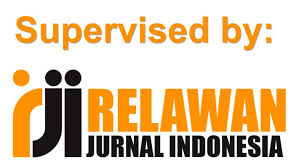Analysis of the Quality of the Faraid Material AKM Instrument to Measure Students' Reasoning Ability with Assistance Ministep
DOI:
https://doi.org/10.37092/ej.v7i2.1007Keywords:
AKM, Faraid, Student Reasoning, MinistepAbstract
21st century skills in Indonesia are relatively low, especially in the literacy and numeracy fields. The government's solution is to implement a Minimum Competency Assessment (AKM). This research aims to analyze the quality of the AKM instrument on faraid material in measuring students' reasoning abilities. The instruments used are evaluated with the help of the software Ministep-based Quick model to ensure validity, reliability, level of difficulty, and function of distractors. The results of the analysis show that the empirical validity of most of the items meets the standards, although several items are declared invalid and require revision. Question reliability showed good consistency with a reliability score of 0.84, while respondent reliability only reached 0.39, indicating a lack of consistency in student answers. Difficulty level analysis produces a distribution of questions that includes easy, medium, difficult, and very difficult categories, ensuring the instrument covers a wide range of student ability levels. In addition, the distractor function was evaluated to ensure the effectiveness of incorrect answer choices in discriminating student understanding. Thus, using Ministep as an evaluation tool helps develop a more valid, reliable, and representative AKM instrument for measuring students' reasoning abilities on varied material.











